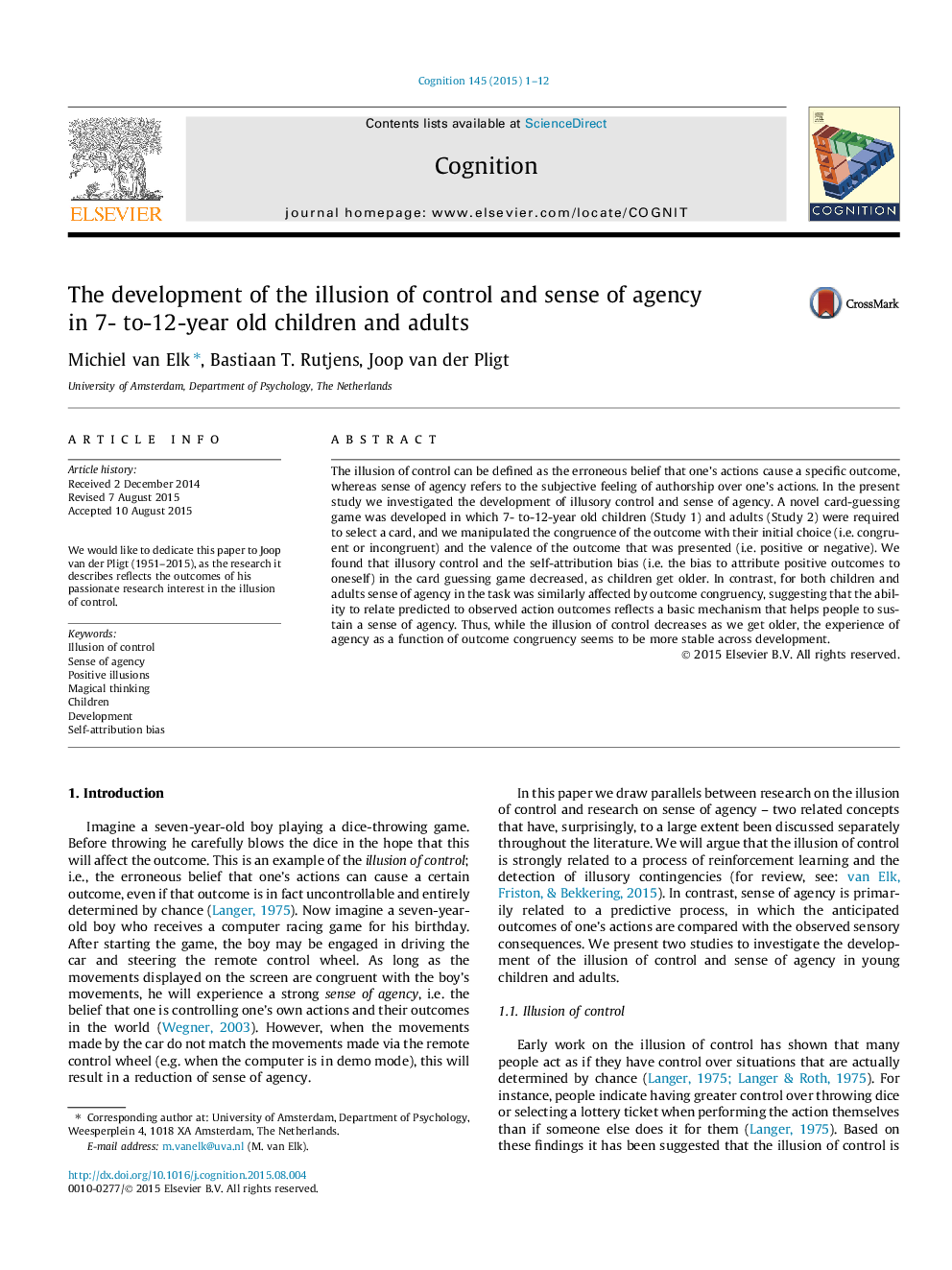| Article ID | Journal | Published Year | Pages | File Type |
|---|---|---|---|---|
| 7286534 | Cognition | 2015 | 12 Pages |
Abstract
The illusion of control can be defined as the erroneous belief that one's actions cause a specific outcome, whereas sense of agency refers to the subjective feeling of authorship over one's actions. In the present study we investigated the development of illusory control and sense of agency. A novel card-guessing game was developed in which 7- to-12-year old children (Study 1) and adults (Study 2) were required to select a card, and we manipulated the congruence of the outcome with their initial choice (i.e. congruent or incongruent) and the valence of the outcome that was presented (i.e. positive or negative). We found that illusory control and the self-attribution bias (i.e. the bias to attribute positive outcomes to oneself) in the card guessing game decreased, as children get older. In contrast, for both children and adults sense of agency in the task was similarly affected by outcome congruency, suggesting that the ability to relate predicted to observed action outcomes reflects a basic mechanism that helps people to sustain a sense of agency. Thus, while the illusion of control decreases as we get older, the experience of agency as a function of outcome congruency seems to be more stable across development.
Related Topics
Life Sciences
Neuroscience
Cognitive Neuroscience
Authors
Michiel van Elk, Bastiaan T. Rutjens, Joop van der Pligt,
